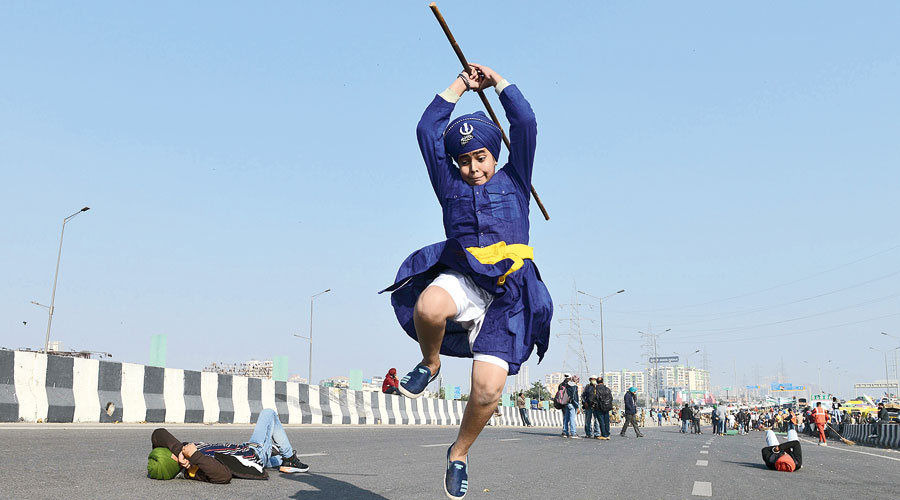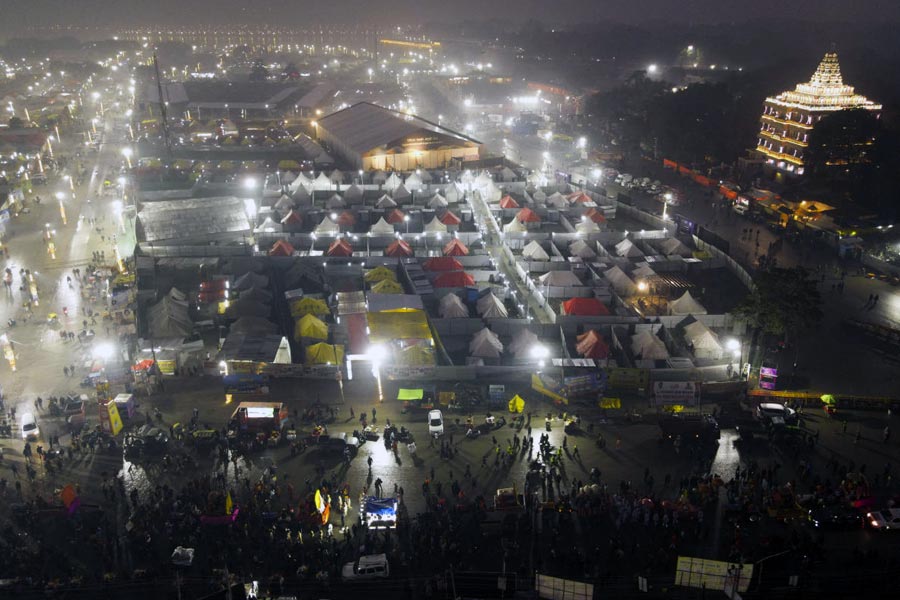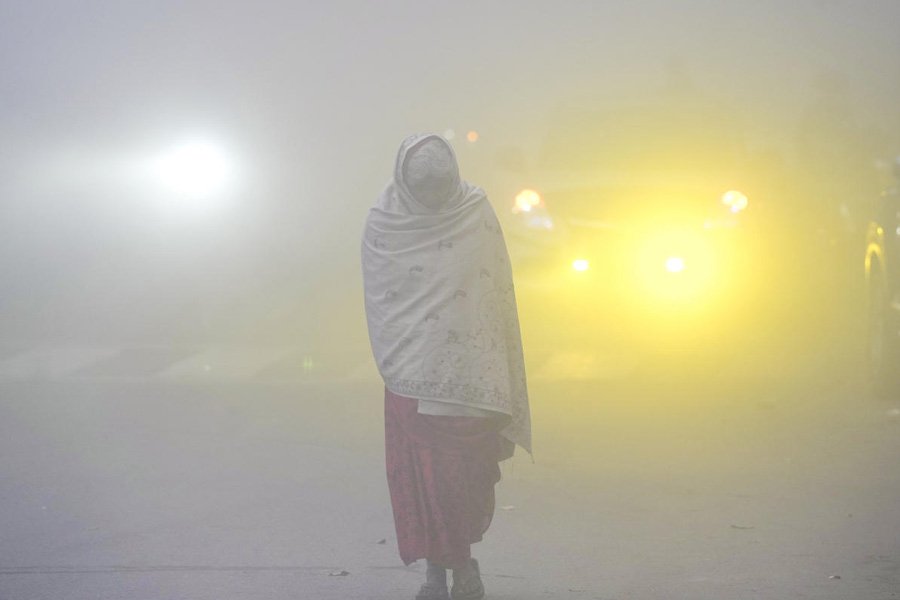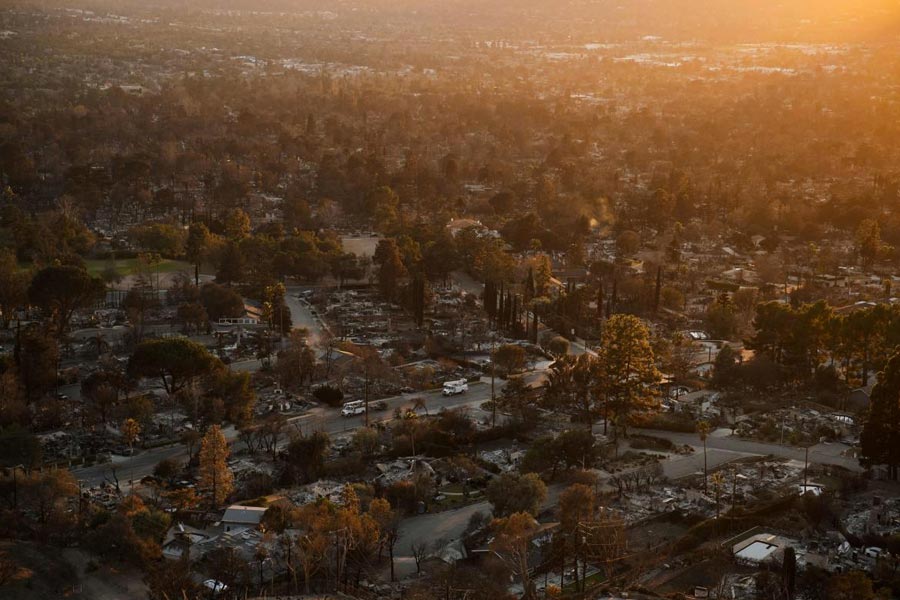As the protesting farmers on Monday said they were preparing for the long haul while seeking repeal of the three new farm laws, an umbrella organisation that is older than the All India Kisan Sangharsh Coordination Committee that had given the “Dilli Chalo” call came out in support of the new regime and demanded the laws should not be withdrawn.
Simultaneously, the BJP’s Haryana unit raked up the Sutlej-Yamuna Link (SYL), purportedly in the hope of disrupting the newfound bonhomie between the farmers of the state and Punjab that is firing up the protests now spreading to other parts of the country.
Haryana agriculture minister and BJP leader Jai Prakash Dalal had last week goaded the state’s farmers, protesting at Delhi’s borders against the three new farm laws, to secure the Centre’s intervention for the completion of the canal so that the state received its share of the waters from Punjab. On Monday, all the BJP MPs and MLAs of the state met Union agriculture minister Narendra Singh Tomar and Jal Shakti minister Gajendra Singh Tomar to raise the issue at the national level.
Although this is a longstanding issue between the two states, the decision by the government’s ecosystem to raise it at this juncture is being widely perceived by farmers as an attempt to sow dissension within their ranks, since neither persuasion nor vilification has weakened their resolve so far.
The All India Kisan Coordination Committee met Tomar and extended support for the three new laws, urging the government not to repeal them. This umbrella organisation claims to have the support of 7,000 NGOs and said their members would rise up to support the farm reforms.
After the meeting, Tomar said farmers from Tamil Nadu, Telangana, Maharashtra and Bihar had met him and welcomed the farm reform bills. Tomar reaffirmed that the government was willing to talk to the agitating farmers.
Prime Minister Narendra Modi is scheduled to meet representatives of the farming community, including Sikh cultivators, in Gujarat during a visit to Kutch on Tuesday.
However, the farmers loyal to the All India Kisan Sangharsh Coordination Committee (AIKSCC), who had moved towards Delhi with rations for a couple of months, have begun cultivating seasonal crops in the areas they are picketing.
According to the AIKSCC – which organised dharnas and gheraos across the country on Monday -- the farmers are sowing coriander, radishes, carrots and other crops on the highway dividers to protect “food sovereignty of the nation”.
A fresh strategy for the days ahead is likely to be announced on Tuesday after the various collectives under the AIKSCC meet to chalk out a course of action in the face of multiple efforts by the government to isolate the protesters.
The protesting farmers took over the Jaipur-Delhi highway after issuing an apology for the inconvenience caused.
In a pamphlet issued by the Sanyukt Kisan Morcha (SKM) – the umbrella organisation under which 500 farmers’ collectives are agitating –- titled “Mein ek kisan (I am a farmer)”, the farmers have apologised with folded hands. They have repeated their request to Prime Minister Narendra Modi to take back the three farm laws.
Referring to Modi’s claim that the new laws are a historic gift to the farmers, the SKM said: “This is not a gift but a punishment. Please keep this gift with yourself. If you want to give us a gift, please enact a law that guarantees minimum support price for our crops.”
Stating “we do not want charity but proper price for our crops”, the farmers said the government was only putting on a show of talking to them.
“The government is not listening to us. It is not our goal to block roads or trouble the common people. We have no option but to sit here in protest,” the pamphlet said.
With the protesting farmers digging their heels in and drawing fresh support, the government is working at various levels to create a parallel narrative. Apart from the ongoing propaganda about the new laws being a silver bullet for the farmers, the BJP’s Delhi unit is planning a four-day campaign to urge the farmers to give up their protest.











